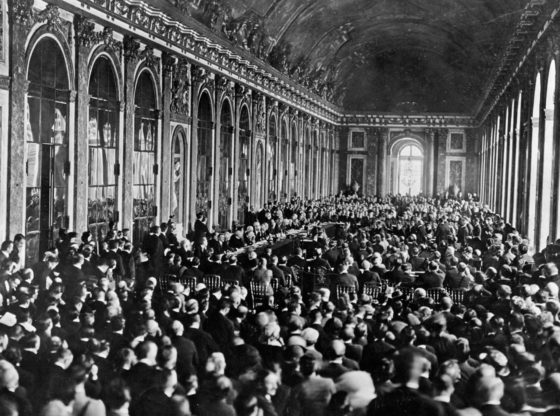A period film made by a noted director in India has been violently attacked by the Rajput communities for allegedly dishonouring one of their medieval queens. But is ‘insulting the sentiments’ the real reason for the violence? The stakes - political, economic, socio-cultural - are bigger than mere pride. Shubham Ghosh writes from Bangalore, India.
India is a country with a myriad of pressing issues to deal with. But one that became bigger than every other challenge in recent times is a film called ‘Padmaavat’, directed by Sanjay Leela Bhansali. No other creative venture in Bollywood – India’s renowned film industry – has faced as much outrage as did this period film, based on the life of the Rajput Queen Padmini, who lived some 800 years ago.
The film’s shooting was marred by violence; its director was assaulted; its release date was postponed; and the actress portraying the queen was threatened. Indeed, the film was only cleared for release after several cuts and its name changed from ‘Padmaavati’ to ‘Padmaavat’, after a 16th century epic poem by the Sufi poet, Malik Muhammad Jayasi.
POLITICAL AGENDAS
Padmaavat’s public release was interrupted in several states of India. Karni Sena, a group from Rajasthan which claims itself as the defender of the proud and ethos of the Rajput community, indulged in violent protests against the film, along with several associated organisations.
What has made things worse is that neither the ruling Bharatiya Janata Party (BJP) nor the opposition Congress Party (both in the state of Rajasthan as well as at the central government level) have taken a strong stand against these atrocities. India’s Prime Minister, Narendra Modi, has shown no intention to stop the protests. The Congress too - led by Rahul Gandhi - has played it safe and kept a low profile. The reason for this is clear: Rajasthan, the state where the Rajput community is mainly based, faces an election later this year and the stakes are too high for the political forces to chance pitting themselves against the ‘keepers’ of the local culture, currently protesting Padmaavat.
The film is one of the most controversial in the history of Indian film-making. And it is not just about the forthcoming election. The problem has several layers to it. And the overall picture speaks poorly about the state of free expression in contemporary India.
MAJORITARIANISM IN POST-NEHRU INDIA
India is currently undergoing a transformation. Once known for secularism, non-alignment, a mixed economy, and a pluralistic democracy, the India of today has nurtured an identity that increasingly clearly nullifies its Nehruvian legacy. Seventy years since its independence, the new ‘Modi-fied’ India - as many refer to India under Prime Minister Narendra Modi - offers a shrinking space for liberty of expression, thought, and mind.
In an atmosphere marked by hatred for minorities, and intolerance for anything that doesn’t fit the majoritarian bill, it is futile to expect creative and subjective liberty to flourish.
There is a concerted effort to sacrifice pluralism at the altar of majoritarianism. ‘Secularism’ is a word which is increasingly hated. In an atmosphere marked by hatred for minorities, and intolerance for anything that doesn’t fit the majoritarian bill, it is futile to expect creative and subjective liberty to flourish. The film director Sanjay Leela Bhansali has certainly experienced this. His creative output - as seen most recently in Padmaavat - has been perceived as a threat by those who believe in a monolithic India, and who think that ‘pride’ is of great importance. Regardless the reality of the day-to-day conditions experienced by women in Rajasthan, or elsewhere in the country’s cow belt are, the story of a queen (who may or may not have existed 800 years ago), as depicted in a film, has become a subject of gargantuan importance. Padmaavat has put - or been allowed to put - India’s age-old ethos of communal harmony under a lot of stress.
IN WORRYING ECONOMIC TIMES, DISTRACTIONS ARE WELCOME
There is a method in this madness. Despite Prime Minister Modi’s efforts to ‘sell the dream’ across the last four years, he has not succeeded in creating enough jobs on the ground. His economic experiments have pegged the country back further on various important indicators. The net result of this has been a piling up of frustration in this vast, youth-dominated country.
Under such conditions, it is easy to see why the ruling elite will allow ‘non-issues’ to turn into attention-grabbing issues which which might distract people from the real challenges.
Under such conditions, it is easy to see why the ruling elite will allow ‘non-issues’ to turn into attention-grabbing issues which which might distract people from the real challenges. Of course, this approach is not confined to Modi’s India: governments of many developing economies do whatever they can to extend their control for at least another day and avoid being held responsible for the ills on the ground. The current silence of India’s political elite on the issue of Padmaavat - and its associated protest and violence - offers a clear example of this in practice.
BOLLYWOOD’S DEAFENING SILENCE
What makes the whole Padmaavat episode so alarming is the fact that so few representatives of the Indian film industry have come forward to openly condemn what has been meted out to Bhansali and his work. There has been a piecemeal reaction but no united stand has emerged to castigate the attacks on an artist’s freedom of expression in the world’s biggest democracy.
Today, it is a film which is being attacked, apparently with few willing to speak out against those attacks. Tomorrow, it could be a book, or a painting, or perhaps a piece of music.
This sets up a horrible precedent. By failing to call out the culprits, India’s artistic community has kept open the door for further attacks and abuse in the future. Whatever has stopped the artists from standing in support of Bhansali, their silence certainly makes the future grimmer for India’s liberal arts. Today, it is a film which is being attacked, apparently with few willing to speak out against those attacks. Tomorrow, it could be a book, or a painting, or perhaps a piece of music. India could soon find itself in a corner from where there is no easy exit route.
INDIA’S IRONY: A MATURING BUT DEGENERATING DEMOCRACY
The deepening of democracy, alongside the deterioration of its subjects’ understanding of democracy’s signatures and merits, has put India at a critical juncture today. This current episode has put the nation’s democratic institutions under pressure, but has also reduced the possibility of curbing the reckless atrocities that are being perpetrated by certain elements in the name of freedom.
The Padmaavat fiasco is not just about politics, about politicians keeping quiet ahead of elections that they want to win. It is also also caste considerations - mostly concerning the sensibilities and status of the Rajputs - and about how identities are playing out in the public domain. Perhaps most importantly, this episode is marked by the pathetic failure of India’s film and arts community (and of members of civic society who value and love the arts) to protect one of their peers as he expresses his artistic faculties.
For the world’s largest democracy, it’s nothing less than a moment of despair.
Shubham Ghosh is a freelance journalist based in Bangalore, India. He writes on international affairs and Indian politics. Find him on Twitter at: @how_isee
Feature image: Deepika Padukone, star of Padmaavati. Image: Newsnation India.










